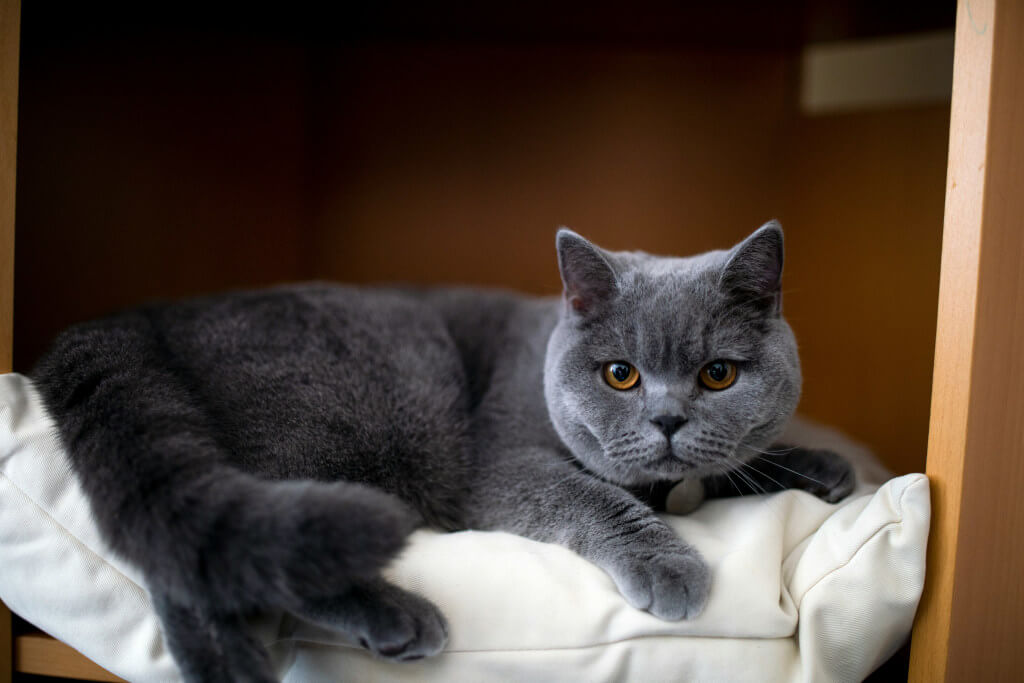Are British Shorthairs Ethical?
British Shorthairs are adored for their plush coats, round heads, and steady, gentle personalities. Often likened to living teddy bears, they offer quiet companionship without hyperactivity. But is their breeding and ownership ethically sound?
🧬 Generally Healthy — but Not Without Risks
British Shorthairs are considered a relatively robust breed, thanks to a diverse gene pool that avoids some of the extreme traits seen in other pedigreed cats. They enjoy long lifespans — typically 12 to 16 years, sometimes into their twenties.
But no breed is perfect. British Shorthairs are prone to certain genetic conditions:
- Hypertrophic cardiomyopathy (HCM): Up to ~20% of males and ~2% of females may develop thickening of the heart muscle, which can lead to heart failure or blood clots. Annual echocardiographic screening is essential for breeding stock.
- Polycystic kidney disease (PKD): While less common than in Persians, PKD has been reported in BSH lines and can impair kidney function over time; genetic testing and breeder transparency matter.
- Feline Infectious Peritonitis (FIP): British Shorthairs may be at higher risk for this often-fatal viral disease, though prevalence varies.
- Obesity and weight-related disease: Their stocky build and calm activity level make them prone to overweight if diet and enrichment are neglected.
Some breeders also push for a more extreme “flat-face” look (brachycephaly), which can bring breathing issues, nasal problems, or eye health issues — traits that raise welfare concerns in many pedigree breeds.
🐾 What Makes a Breed Ethical?
Ethical breeding prioritizes health and welfare, focusing on:
- Genetic screening: Particularly for HCM and PKD — even if no DNA test exists for HCM, ultrasound-based screening is widely recommended — and refusing to breed cats that test positive.
- Avoiding extremes: Cats bred for exaggerated appearance — too flat a face, extremely short limbs or overly thick body — often suffer from breathing, mobility, or spinal issues. British Shorthairs selected for moderate, natural conformation generally fare better.
- Maintaining genetic diversity: Responsible breeders avoid inbreeding and popular sire syndrome, ensuring healthy variability across litters.
- Long-term health commitments: Lifetime health guarantees, early socialization, veterinary partnerships, and transparency about pedigrees and health history are signs of ethical practices.
✅ Ethical Prospects: When British Shorthairs Can Be a Good Choice
What ethical breeders do right:
- Screen breeding cats annually for heart and kidney health.
- Avoid overemphasizing extreme "show" traits.
- Educate buyers about obesity risks and promote active care.
- Use diverse genetic lines to minimize inherited disease.
Why this matters:
British Shorthairs don’t inherently carry painful skeletal defects like Scottish Folds. But if bred without care, they can still develop serious conditions like HCM, obesity, or respiratory/skeletal issues from facial extremes.
🐱 Ethical Alternatives & Adoption
If you're drawn to the British Shorthair’s temperament and look, but prefer to avoid pedigree pitfalls:
- Adopt a mixed-breed domestic shorthaired cat with a stocky, cushioned appearance — but likely far fewer inherited issues.
- Choose shelter or rescue cats; you might find adult British Shorthair crosses who already have stable temperaments and known health.
- If going with a breeder, insist on HCM/KD screening paperwork, ask about parent health history, and avoid kittens bred for extremes.
🧠 Final Thought
British Shorthairs, when responsibly bred, can offer healthy, low-stress companionship for many years. They lack the severe genetic disorder tied to Scottish Folds, but breeders must still be vigilant against heart disease, obesity, and welfare-compromising physical traits.
If breeders are not transparent, neglect genetic screening, or pursue exaggeration, then the ethics become dubious — just like with any breed. Choose a source that prioritizes long-term health over flashy looks, or consider adoption for better welfare outcomes all around.
Ethical checklist for choosing a British Shorthair:
- Breeder provides documentation of HCM ultrasound screening for both parents.
- Parents are tested or screened for PKD risk.
- The cat's face is moderate, not ultra-flat or exaggerated.
- The breeder discloses pedigrees, supports genetic diversity, and offers health guarantees.
Ultimately, if cared for thoughtfully, a British Shorthair can be an ethical and loving companion. If not, adoption or simply choosing a healthier mixed-breed may be the more compassionate path.
